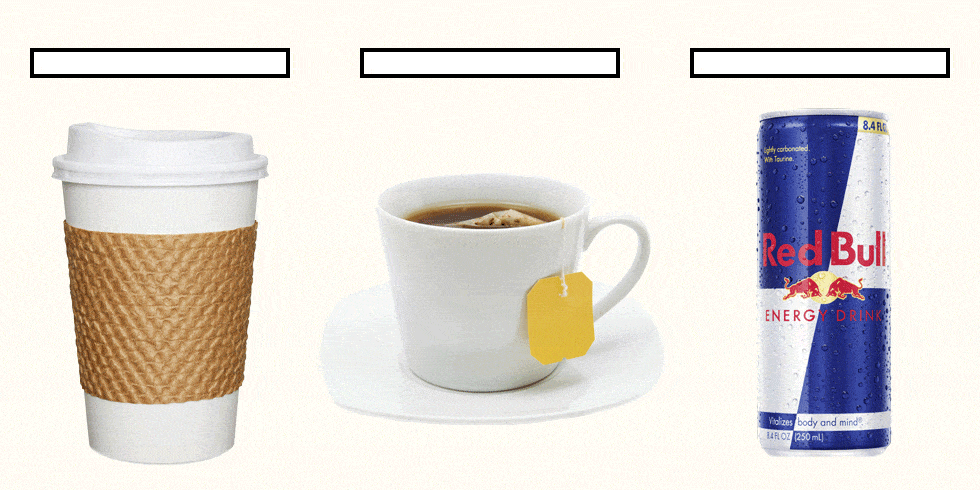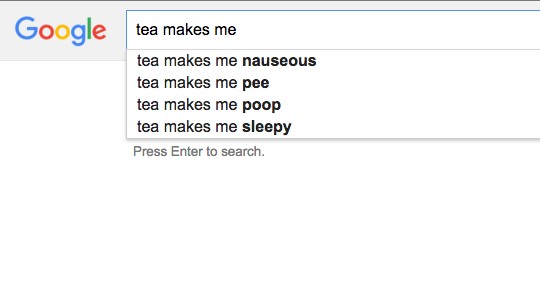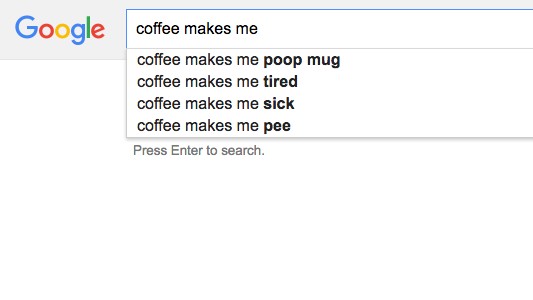How Different Kinds of Caffeine Affect Your Productivity: a Semi-Scientific Study
Because speeding through the day is all that matters.

Earlier this week at Marie Claire Industries™, we investigated why your hair looks fire right before a haircut like it's trying to spite you. Now, we bring you more important, scientifically sound research on the subject of caffeine and how its different delivery methods affect your productivity. Isn't science FUN? ::Erlenmeyer flasks explode behind me::
Technically, caffeine from any source behaves similarly once it enters your body—that is to say "as go-go juice for adults"—but from personal experience, you'll know that's not exactly true. Here, we evaluate coffee, tea, energy drinks, etc. on the only criteria that actually matters: how quickly they get you through the workday.
Coffee
It'll make you live forever. It'll kill you. But who cares when you need that jagged lightning strike of energy so you can power through a story (HAHA) and go home? If you're immune to coffee's amphetamine effect unlike certain people who swear they can feel their atoms vibrating after a lame half-cup of drip brew, by all means drink it for the stimulants. (And the not-getting-Alzheimer's-or-heart-disease-or-cirrhosis-of-the-liver-ness .)
But back to the immortality thing: The longer you keep yourself from dying, the longer you can keep working for The Man. So there's that if you're thinking about productivity from a big-picture perspective. P.S. This fun-seeming office went from full-fat coffee to decaf and saw a 19 percent drop in output.
Tea
The unnamed caffeine-sensitive person from before has been told that black tea makes her mean, which isn't such a surprise given that some varieties can contain up to 70 milligrams of caffeine per eight-ounce serving. But whereas coffee comes with the possibility of jitters, tea also increases blood pressure, heart rate, alertness, and energy sans shuddering in a corner like a junkie suffering from withdrawal. Not that I've ever done that.
At this crucial point in the "study," we bring in the most scientific tool of all: Google, to introduce some potential, shall we say, workflow interruptions other worshippers at the altar of caffeine have searched for.


Energy drinks
Not even once, because you will take a sip, gag, then spend the rest of the day nauseated and irrationally fearful of pencil erasers. Or so I've heard.
Get exclusive access to fashion and beauty trends, hot-off-the-press celebrity news, and more.
The professional side of science hasn't yet proven that a daily Red Bull will raise your heart rate until it ticks like a runaway metronome, but it has raised concerns about prolonged use and the ingredient list, which, for now, passes muster by the FDA's standards.
Energy drinks
Too roller-coaster-y and unreliable with all the sugar. Not recommended.
Chocolate
A 2013 Harvard study found that drinking two cups of hot chocolate a day for a month was linked to improved blood flow to the brain and better scores on memory and thinking skill tests for elderly people with impaired blood flow. Hell yes. But you know what's even more convincing than a Harvard study? The happiness one experiences in the afternoon when one eats a square of Jacques Torres while watching the panda livestream. And that, in itself, is the greatest upper of all.
Follow Marie Claire on Instagram for the latest celeb news, pretty pics, funny stuff, and an insider POV.
Chelsea Peng is a writer and editor who was formerly the assistant editor at Marie Claire. She's also worked for The Strategist and Refinery29, and is a graduate of Northwestern University. On her tombstone, she would like a GIF of herself that's better than the one that already exists on the Internet and a free fro-yo machine. Besides frozen dairy products, she's into pirates, carbs, Balzac, and snacking so hard she has to go lie down.